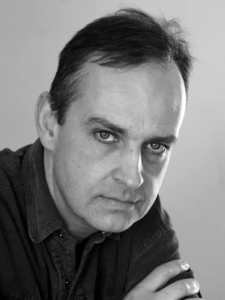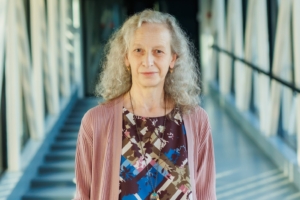Non-Degree / Dates:14 - 18 July 2025
Do you have a story to tell? A memoir you want to write? Biography? Travel? Autofiction? Try your hand as a creative non-fiction writer with a summer course that aims to give you the best possible introduction to an exciting, fast-developing literary field. Throughout his five-day course in the art of non-fiction, Ian Thomson looks at “creative” non-fiction in the broadest sense. We consider memoir, literary reportage, travelogue, the personal essay, as well as hybrid forms that might incorporate all four categories. Participants will engage with all elements of writing non-fiction, from the earliest stages of the composition process, focussing on voice (literary style), dialogue, scene-setting and narrative pacing. There will be time for independent writing of your own in response to practical writing exercises set by the teacher, as well as a chance to discuss such thorny subjects as the ethics of blending “truth” with “untruth” in non-fictions.
Each day in the seminar room, you’ll look at a work of non-fiction by an established author, to see how it’s done. You’ll experiment with your own writing and develop your skills through reading your peers’ non-fiction in workshop groups, and have the opportunity to develop and improve your work through re-drafting in response to group discussion. You’ll receive feedback on your work from your teacher, and build up a body of work – maybe your work will contain the seed of a future book.
******
Creative non-fiction can accommodate any number of genres and sub-genres (including wiki page entries, aphorisms and film scripts), but it has to show literary potential. Otherwise it would be non-creative non-fiction. You’ll think from day one about what makes a piece on non-fiction succeed as literature, be encouraged to explore new ways of storytelling, and experiment with different subjects and voices.
By examining “good” craft practice, observed through the set non-fiction pieces, we’ll think about such questions as: When is a life worth telling? How to tell it well? And when is it permissible to blend fiction with non-fiction?
We’ll consider how acclaimed and diverse works of non-fiction draw the reader in. Any piece of writing is necessarily a fashioning and shaping of events (the etymology of fiction is from the Latin fingere, to “mould”, “shape” or “contrive”), but we do not expect non-fiction to distort in the same way. The truth is, it does distort. We look at how your own non-fiction can be reshaped and re-drafted to reflect your voice and preoccupations, and how it might achieve literary distinction. On the final day, there will be an opportunity for students to present their work.
Why this course?
Programme
The course is five days long. The sessions will run from 9 am until 1.45 pm, with breaks for coffee and lunch. Each day will incorporate sessions of close reading, followed by group discussion. The topic for discussion each day will lead into a writing exercise. Independent work includes daily reading and writing tasks.
The samples of non-fiction provided by your teacher will focus on different aspects of non-fiction: memoir, first person testimony, autofiction, travel, quest, illness (recovery), hybrid non-fiction. In order to be good writers we also need to be good readers. As we read the set texts, we’ll consider three questions: What is the writer trying to do? How well does he or she succeed in doing it? Is it worth doing? We’ll discuss whether the writer has a distinctive style or “voice” and whether he or she has an ear for dialogue? You’ll be encouraged to bring into the seminar samples of non-fiction writing which you consider particularly memorable.
A good deal of the best non-fiction derives from craft. Your teacher will initiate discussions about craft. The easier and more effortless non-fiction looks, the more thoroughly it is often underpinned by technique. This idea may seem counterintuitive, but good non-fiction writing is technical and hard. The guided writing sessions give students the confidence to pursue a non-fiction idea. It is entirely normal – in fact, it is entirely right – to despair at times of the writing process, but if you want to succeed as a biographer, nature writer, essayist, memoirist or travel writer, this course is for you. As Samuel Beckett wrote in the closing lines of his 1953 novel The Unnamable:
You must go on.
I can’t go on.
I’ll go on.
You can see the day-by-day timetable here.
Teacher(s)
Ian Thomson is a Senior Lecturer in Creative Non-Fiction. He is a Fellow of the Royal Society of Literature and has lectured in universities in the United States, France, Italy and London. He was one of the judges for the RLS Somerset Maugham prize in 2018 and for the Ondaatje Prize in 2019. He contributes regularly to the national broadsheets and weekly magazines, among them the Observer, Times Literary Supplement and the Spectator. His first important book, Bonjour Blanc: A Journey Through Haiti (1992), considered a “great and abiding classic” by the film director Jonathan Demme, was listed for the Thomas Cook Travel Award. His biography of Primo Levi, Primo Levi: A Life (2002), took 10 years to write and won the Royal Society of Literature’s W.H.Heinemann Award. In 2005 Ian Thomson returned to the West Indies to write The Dead Yard: Tales of Modern Jamaica (2009). Banned in Jamaica for political reasons, the book was awarded the Royal Society of Literature’s Ondaatje Prize and the Dolman Travel Book Award. Ian Thomson has translated the Sicilian crime writer and essayist Leonardo Sciascia into English, and edited Articles of Faith: The Collected Tablet Journalism of Graham Greene (2006). In addition he has contributed a short story to Kingston Noir (2012). His latest book, Dante’s Divine Comedy (2019), reflects a lifelong interest in Italy.He is currently working on a book about his mother’s birthplace in the Baltic during World War II.
Miriam McIlfatrick-Ksenofontov (course coordinator) is a lecturer of Anglophone literature and literary analysis at Tallinn University, where she defended her PhD thesis on the poetics of translation and creative process in translation. She is a translator of Estonian poetry for oral performance and print publication. She received an Estonian Cultural Endowment award for her translation of Doris Kareva’s poetry in 2018 and the Looming (Creation) journal prize for her own poetry in Estonian translation in 2019.
Participants
This summer course is suitable for people interested in writing creative non-fiction, from relative beginners to more experienced writers.
During the course you will be expected to attend the seminars and workshops, submit your work for peer review and create a portfolio of your own writing.
The course is limited to 14 participants. Age: 18 years+
Credit points
Upon full participation and the completion of the course, the students will be awarded 2 ECTS points and a certificate of completion.
Course fee
NB! Accommodation, cultural programme and meals are not included in the price.
| Early-Bird Course Fee (until 31 March) | 430€ |
| Regular Course Fee (after 31 March) | 480€ |
Contact
Ian Thomson
course tutor
Miriam McIlfatrick-Ksenofontov
course coordinator
Tatiana Ivanova, Estonia
Creative Writing in English #tss2019



